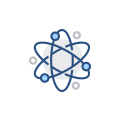Ministerial Meetings
Japan: Cabinet Office
China: Ministry of Emergency Management
ROK: Ministry of Interior and Safety
TCS: Secretary-General
■ Agenda
- Review the key disaster prevention policies and experiences in response to increasingly more frequent and intense natural disasters
■ Outcomes
(1) to ensure steady implementation of the Sendai Framework with its midterm review to be conducted in 2023,
(2) to strengthen the capacities and measures of each side to respond to various natural disasters,
(3) to further promote trilateral cooperation on capacity building on disaster management through CJK education and training institutions.
■ Documents
The Trilateral Joint Statement on Disaster Management Cooperation
ROK: Ministry of Interior and Safety
Japan: Cabinet Office
China: Ministry of Civil Affairs
TCS: Secretary-General
■ Agenda
1. Progress report on disaster management in each country
2. Strengthening of disaster prevention capabilities by sharing the three countries' policies for preventing major disasters
■ Outcomes
1. Adopted the "Trilateral Joint Statement on Disaster Management Cooperation"
1) Reinforce the trilateral cooperation framework among the three countries
2) Create opportunities for mutual learing on advanced disaster management systems developed by the three countries
3) Explore measures to expand the exchange ofdisaster and safety experts among the three countries
■ Documents
Trilateral Joint Statement on Disaster Management Cooperation
China: Ministry of Civil Affairs
Japan: Cabinet Office
ROK: Ministry of Interior and Safety
TCS: Deputy Secretary-General
■Agenda
1. Review of the outcomes of the previous four trilateral Ministerial Meeting on Disaster Management and discussion on the progress of the three countries in implementing the “Sendai Framework for Disaster Risk Reduction 2015-2030.”
■Outcome
1. Adopted the "Trilateral Joint Statement on Disaster Management Cooperation"
1) Continue to promote the implementation of the Sendai Framework for Disaster Risk Reduction 2015-2030 (SFDRR)
2) Strengthen capacity building on disaster risk reduction and relief
■Documents
Trilateral Joint Statement on Disaster Management Cooperation (2017.09.07)
China: Ministry of Civil Affairs
Japan: Cabinet Office
ROK: Ministry of Public Safety and Security
TCS: Deputy Secretary-General
■Agenda
1. Review of the outcomes of the 1st, 2nd and 3rd Trilateral Heads of government Agency Meeting on Disaster Management
2. Discussion on the progress in disaster risk reduction among the three countries
■Outcome
1. Adopted the "Trilateral Joint Statement on Disaster Management Cooperation"
1) Promote the implementation of the SFDRR (Sendai framework for Disaster Risk Reduction 2015-2030)
2) Education and Training
■Documents
Trilateral Joint Statement on Disaster Management Cooperation (2015.10.28)
China: Ministry of Civil Affairs
Japan: Cabinet Office
ROK: National Emergency Management Agency
TCS: Secretary-General
■Agenda
1. Review of the outcomes of the 1st and 2nd meeting, and embodiment of disaster management cooperation.
■Outcome
1. Adopted the "Trilateral Joint Statement on Disaster Management Cooperation"
1) Technology and information sharing on disaster management
2) Education and training
■Documents
Trilateral Joint Statement on Disaster Management Cooperation (2013.10.30)
Download. EN
- 2013-01-10
- Boao, China
China: China Earthquake Administration
Japan: Japan Meteorological Agency
ROK: Korea Meteorological Administration
■Agenda
1. Introducing the current work and future plans for the earthquake and tsunami warning/information services, as well as reporting on the recent earthquake disasters
2. Discussion on previous Minutes and cooperation
3. Discussion on updating the list of focal points
■Outcome
1. Agreed on real-time exchange on seismic wave data of selected seismic station between JMA and KMA, and near real-time seismic data exchange between CEA and KMA
2. Agreed on promoting international and regional cooperation by sharing information of seismic and volcanic activities on Changbai Mountain (also known as Baekdusan in ROK) between CEA and KMA
3. Agreed on discussing details of the cooperation on tsunami hazard analysis and regional capacity development at working level
4. Agreed the importance of joint efforts on sesimic hazard assessment
5. Decided to update the list of focal points
■Documents
Minutes of the Sixth Tripartite Meeting on Earthquake Disaster Mitigation (2013.01.10)
(Confidential)
Download. EN
- 2010-11-17
- Jeju, Korea
China: China Earthquake Administration
Japan: Japan Meteorological Agency
ROK: Korea Meteorological Administration
■Agenda
1. Introduction of the Earthquake Services of the three sides
2. Review of cooperative activities since the forth tripartite meeting in 2008
3. Future cooperative activities
1) Exchange and expansion of seismic data
2) Development of foundation for collaboration to address volcanic activities in Northeast Asia
3) Real-time exchange of tsunami observations
4) Exchange of geophysical observational data and sharing of data processing technology
5) Sharing of important past earthquakes observations
6) Discussion on designation of Focal Points
■Outcome
1. Agreed on exchanging near real-time earthquake observation data based on the list of seismic stations
2. Agreed on exchanging technical information on volcanoes
3. Agreed to share up-to-date information on tsunami observation facilities and operations, and to exchange tsunami data as needed
4. Agreed the importance of exchanging the result of geophysical observations
4. Agreed on sharing important earthquakes records
5. Updated the list of focal points and set up the working-level focal points to conduct joint activities
■Documents
Minutes of the Fifth Tripartite Meeting on Earthquake Disaster Mitigation (2010.11.17)
(Confidential)
Download. EN
- 2008-11-28
- Tokyo, Japan
China: China Earthquake Administration
Japan: Japan Meteorological Agency
ROK: Korea Meteorological Administration
■Agenda
1. Discussion on exchanging information on seismic waveform data
2. Experts’ mutual exchange to share research results, technical knowledge and system operation manners
■Outcome
1. CEA agreed to exchange near real-time data with JMA and KMA
2. Recognized importance of sharing Earthquake Early Warning (EEW) system
■Documents
Minutes of the Fourth Tripartite Meeting on Earthquake Disaster Mitigation (2008.11.28)
(Confidential)
Download. EN
- 2006-11-20
- Beijing, China
China: China Earthquake Administration
Japan: Japan Meteorological Agency
ROK: Korea Meteorological Administration
■Agenda
1. Discussion on exchanging information on seismic waveform data
2. Experts’ mutual exchange to share research results, technical knowledge and system operation manners
■Outcome
1. CEA agreed to exchange near real-time data with JMA and KMA
2. Recognized importance of sharing Earthquake Early Warning (EEW) system
■Documents
Minutes of the Fourth Tripartite Meeting on Earthquake Disaster Mitigation (2008.11.28)
(Confidential)
Download. EN
- 2005-10-22
- Seoul, Korea
China: China Earthquake Administration
Japan: Japan Meteorological Agency
ROK: Korea Meteorological Administration
■Agenda
1. Discussion on selecting observational data on seismic waves, and providing real-time observation data
1) Discussion on notifying partner countries about earthquakes with magnitudes over 6.5
2) Exchange of important past earthquake data
3) Discussion of new technology and expert exchange for processing observation data
4) Exchange of experts and knowledge through joint research and workshops
■Outcome
1. Agreed to start dissemination of the seismic wave data obtained at their selected stations on an operational basis between KMA and JMA. CEA was willing to select some stations for near realtime exchange with KMA and JMA
2. Agreed to provide the other two organizations with information on the origin time, hypocenter and magnitude of earthquakes with a magnitude of 6.5 and over
3. Agreed to promote off-line exchange of seismic wave data on past significant events among the three countries.
4. Agreed to exchange information and experts for the application of new technologies on seismic data
5. Agreed to consider the possibility of holding joint research and workshops that contribute to earthquake disaster mitigation
■Documents
Minutes of the Second Tripartite Meeting on Earthquake Disaster Mitigation (2005.10.22)
(Confidential)
Director-Generals' Meetings
- 2015-08-04
- Tokyo, Japan
China: Ministry of Civil Affairs
Japan: Cabinet Office
ROK: Ministry of Public Safety and Security
TCS: Trilateral Cooperation Secretariat
■Agenda
Preparation for the Trilateral Heads of Government Meeting on Disaster Management
- 2013-08-27
- Seoul, Korea
China: Ministry of Civil Affairs
Japan: Cabinet Office
ROK: Ministry of Public Safety and Security
■Agenda
Preparation for the Trilateral Heads of Government Meeting on Disaster Management
- 2011-08-31
- Beijing, China
China: Ministry of Civil Affairs
Japan: Cabinet Office
ROK: Ministry of Public Safety and Security
■Agenda
Preparation for the Trilateral Heads of Government Meeting on Disaster Management
- 2009-06-02
- Seoul, Korea
China: Ministry of Civil Affairs
Japan: Cabinet Office
ROK: Ministry of Public Safety and Security
■Agenda
Preparation for the Trilateral Heads of Government Meeting on Disaster Management
Working-Level Meetings
- 2016-06-22
- Seoul, Korea
China: Ministry of Civil Affairs
Japan: Ministry of Foreign Affairs, Cabinet Office, and Japan International Cooperation Agency (JICA)
ROK: Ministry of Public Safety and Security, Ministry of Foreign Affairs, Korea Meteorological Administration, and Korea International Cooperation Agency (KOICA)
TCS: Deputy Secretary-General
■Agenda
1.A simulation exercise based on a scenario of a large scale typhoon hitting the Korean Peninsula
2.Shared the experience and lessons learned from the international rescue operation in Nepal Earthquake 2015
■Outcome
1. Developed scenario based on the situation in the host country with more details
2. Expanded experience-sharing session
3. Succeeded in familiarizing officials of the three countries with the general process of requesting and receiving international assistance.
4. Discussed what can be done prior to the disaster, including early warning to the public and neighbor countries, and specific measures to protect foreign nationals in their respective countries
- 2015-04-28
- Beijing, China
China: State Council Emergency Office, Ministry of Foreign Affairs, Ministry of National Defense, Ministry of Civil Affairs, Office of State Food Control and Drought Relief Headquarters, and China Earthquake Administration
Japan: Ministry of Foreign Affairs, and Japanese International Cooperation Agency (JICA)
ROK: Ministry of Foreign Affairs, Ministry of Public Safety and Security, National Medical Center, Korea International Cooperation Agency (KOICA)
Expert: United Nations Office for the Coordination of Humanitarian Affairs (UNOCHA)
TCS: Deputy Secretary-General
■Agenda
1. A simulation exercise based on a hypothetic scenario of a major earthquake happened in China
2. Paid a site visit to the National Disaster Reduction Center of China (NDRC)
■Outcome
1. Shared the view that the TTX has been playing a significant role of strengthening the network among the disaster management agencies of the three countries, which contributes to confidence building of the three governments as well as to the development of the trilateral cooperation
■Documents
Report of the 3rd Trilateral Table Top Exercise (TTX) on Disaster Management
- 2014-03-06
- Tokyo, Japan
China: Ministry of Civil Affairs
Japan: Cabinet Office, and Ministry of Foreign Affairs
ROK: Ministry of Foreign Affairs, National Emergency Management Agency, and Korean International Cooperation Agency (KOICA), and National Medical Center
Expert: Japan International Cooperation Agency (JICA), and United Nations Office for the Coordination of Humanitarian Affairs (UNOCHA)
TCS: Secretary-General
■Agenda
1. A simulation exercise based on a hypothetic scenario of a large scale of earthquake and tsunami striking Japan.
2. Paid a site visit to Ariake no Oka Core Wide-area Disaster Prevention base
■Outcome
1. Identified roles of relevant organizations in the context of multinational (trilateral) disaster relief operation;
2. Increase understanding of disaster management coordination mechanisms and processes in each country;
3. Identified gaps, issues, challenges for further development and improvement.
■Documents
Report of the 2nd Trilateral Table Top Exercise (TTX) on Disaster Management
- 2013-03-14
- Seoul, Korea
China: Ministry of Foreign Affairs, Ministry of Civil Affairs
Japan: Ministry of Foreign Affairs, and Japan International Cooperation Agency (JICA)
ROK: Ministry of Foreign Affairs, National Emergency Management Agency, Korea Meteorological Administration
Expert: United Nations Office for the Coordination of Humanitarian Affairs (UNOCHA), and Seoul National University
TCS: Secretary-General
■Agenda
1. A simulation exercise based on a hypothetic contingency situation involving a large scale of earthquake in the ROK.
■Outcome
1. Shared the view that the TTX provided a meaningful and useful platform to increase mutual understanding of the procedures and mechanisms with respect to humanitarian assistance on disaster relief in the three countries
2. Agreed to hold another Trilateral TTX in the following year, with a view to continue strengthening trilateral cooperation in the field of disaster management
■Documents
Report of the 1st Trilateral Table Top Exercise (TTX) on Disaster Management
- 2014-03-28
- Jeju, Korea
China: Ministry of Civil Affairs
Japan: Cabinet Office
ROK: National Emergency Management Agency
United Nations Economic and Social Commission for Asia and the Pacific (UNESCAP)
United Nations Office for Disaster Risk Reduction (UNISDR)
Mongolia, Indonesia, Laos, Philippines, Germany, academia, research institutes, other UN organizations, etc.
TCS: Deputy Secretary-General
■Agenda
1. The Meeting was held under the name of “Trilateral Expert Meeting on Disaster Loss Data and DRR Technology Sharing”
1) Perspectives from Northeast Asia
2) Setting the context for Building Disaster Resilience
3) Disaster Statistics for Resilience
4) Risk Assessment using disaster loss data
5) Opportunities for sharing disaster data and Disaster Risk Reduction (DRR) Technology
6) Needs for utilizing disaster data and sharing DRR technology
7) New paradigm for resilience and development
- 2011-12-16
- Tokyo, Japan
China: Ministry of Civil Affairs
Japan: Cabinet Office
ROK: National Emergency Management Agency
■Agenda
1. Presentation on “Reconstruction Efforts after the Wenchuan Earthquake and Inspirations” from China
2. Presentation on “Comprehensive Emergency Management Measures on Climate Change Agreement (CCA)” from ROK
3. Presentation on “Expert Committee's report on Earthquake and Tsunami Countermeasures based on the lessons learned from the Great East Japan Earthquake” from Japan
4. Exchange opinions among the three countries
- 2013-07-30
- Jilin, China
China: China Earthquake Administration
Japan: Japan Meteorological Agency
ROK: Korea Meteorological Administration
■Agenda
1. Session : Volcano
2. Session : Earthquake
3. Session : Tsunami and Earthquake
4. Session : Volcano and Earthquake
- 2012-10-31
- Jeju, Korea
China: China Earthquake Administration
Japan: Japan Meteorological Agency
ROK: Korea Meteorological Administration
TCS: Deputy Secretary-General
■Agenda
1. Session 1 : Earthquake
2. Session 2 : Tsunami
3. Session 3 : Volcano
4. Session 4 : The 2nd Annual Meeting of the Strategic Chinese-Korean-Japanese
Cooperative Program: Seismic Hazard Assessment for the next Generation Map
Download. EN
- 2011-10-21
- Beijing, China
China: China Earthquake Administration
Japan: Japan Meteorological Agency
ROK: Korea Meteorological Administration
■Agenda
1. Session 1: Great Earthquakes and Disasters: Lessons, Experiences, and Scientific Insights
2. Session 2: Tsunami Warning: Implementation and International Cooperation
3. Session 3: Volcano Monitoring
4. Session 4: Development of Monitoring Systems
5. Session 5: Recent Development of Science and Technology and Impacts on the Preparedness and Mitigation of Natural Disasters
6. Session 6: Communicating with the Public
■Outcome
1. Adopted the "Beijing Understanding"
2. Reached a consensus that collaboration needs to be continued and strengthened among the three countries as well as with other Asian countries to further enhance scientific knowledge and relevant technologies against seismic hazards
■Documents
Beijing Understanding (2011.10.21)
-

Summit
-

Agriculture and Fishery
-

Audit
-

Consumer
-

Culture
-

Customs
-

Disaster Management
-

Economy and Trade
-

Education & Youth
-

Environment
-

Finance
-

Foreign Affairs
-

Forestry
-

Health
-

ICT
-

Intellectual Property Rights
-

Local Government Exchange
-

Nuclear Safety
-

Personnel
-

Regional Policy
-

Science and Technology
-

Security
-

Sports
-

Standards
-

Tourism
-

Transport and Logistics
-

Water Resources
-

Think Tanks
